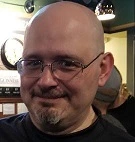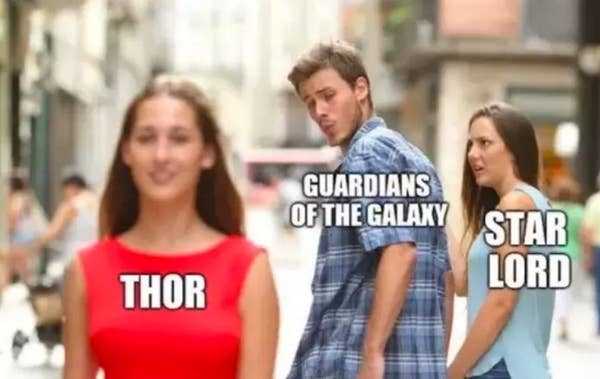If you enjoy this post, please retweet it.
First off, Scarlet Witch is the strongest Avenger because all of these characters are defined solely by what’s in the script, and that’s what Kevin Feige says. However, art is in the eye of the beholder, so my interpretation is as valid as anyone else’s. My interpretation is that Thor has proven himself to be the strongest Avenger, and by “Avenger,” I mean “good guy we’ve seen on screen that remains alive in the MCU.”
Odin, Surtur, and Hela Are Dead … I Think
I don’t read the comics, but I know a few things, and it appears that Thor: Ragnarok recognized that Thor was finally gaining the “Thorforce.” With Odin, Surtur, and Hela dead, that would make sense. Also, with those three dead, you have a few major hurdles cleared for my claim to ring true.
Of course, Hela and Surtur could be alive, but at least one could interpret Surtur’s words as a suggestion that he would die once his destiny was fulfilled. Hela? Who knows? Damn comics! But for now, I’m assuming they’re dead, which would clear the path for the Thorforce, eventually placing Thor on Odin’s level.
Compare to Captain Marvel
This was Feige’s first claim. Powered by the Space Stone, she’s a reasonable choice, and the data we have is strongly in her favor. However, our measuring stick is Thanos, and there, Captain Marvel wasn’t as impressive. At the beginning of Endgame, she managed to control a severely injured Thanos long enough for everyone else to get in position. Sure, Rocket couldn’t do that, but <yawn>. In the final battle, she took on a full-powered Thanos one-on-one, but even though he had all six Stones, he wasn’t actively using them. They were in the gauntlet, and she was keeping his hand open, which according to Dr. Strange’s dialogue in Infinity War means that Thanos couldn’t wield any stone’s power while in the gauntlet. In that fight, we saw a brief stalemate until Thanos used the Power Stone to send Captain Marvel flying across the battlefield. Was she impressive? Yes. Did she seem as much a match for Thanos as Thor? No way.
Sure, in Thor’s first fight with Thanos, Thanos kicked his ass with the Power Stone, but that was immediately after Thor was blasted to hell by the weaponry of Thanos’s ship. In fact, in defeat Thor was impressive because he was taking the continuous force of the Power Stone to his head rather than an intermittent blast. Facing off against him later in Infinity War, Thor had no problem handling Thanos even while Thanos was using the Infinity Stones, and that’s the proper metric. Thor was depleted in Endgame because the plot needed him to be. Otherwise, the battle in Endgame would have taken 15 seconds. Thanos without the Infinity Stones v. Thor with either Stormbreaker or Mjolnir isn’t even close based on what we’ve seen, and he was wielding both. Get Thor mentally healthy, and he’s the go-to guy.
Compare to Scarlet Witch
This is Feige’s current choice, but has she proven to be as powerful as Thor? It’s clear from her fights with Proxima Midnight and Hawkeye that she’s still just a fragile human with slow human reflexes and a fragile human mind (i.e., one that would descend into madness if she tried to wield Stormbreaker). If you can get past her offense, she doesn’t have much defense, at least not against someone that can fly. Thor, on the other hand, took the brunt of a neutron star. ‘Nuff said.
But what about her offense? Arguably, she was on the verge of killing Thanos when he didn’t have the Infinity Stones. When he had 5 Stones, she was at best at a standstill, but eventually lost the tactical battle. Once Thanos had all six Stones, he was the most powerful being in the universe (so far), and Thor almost killed him. Sorry, but I’d rather have Thor watching my back. Even if you could make a compelling argument that Scarlet Witch has more raw power than Thor, sometimes what matters most is willpower. Thor wins.
Conclusion
The only character for whom I have a bias is Thor. This is because of my love of mythology, and Norse mythology in particular. I’m sure that’s obvious here, so even if you have a decent counterargument, I probably won’t buy it. That’s just how I roll. But I doubt you have a decent counterargument.
A mentally and physically healthy Thor is clearly the strongest Avenger. He also had the best individual entrance in cinematic history.
Follow me on Twitter at @gsllc (please retweet!)
Follow Chris Hemsworth @chrishemsworth
Follow Brie Larson @brielarson




